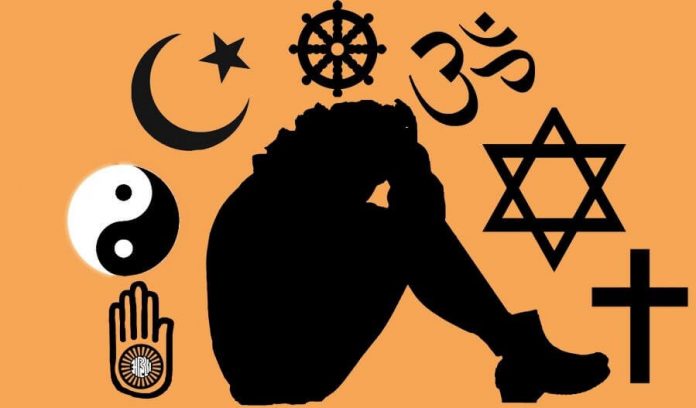This article is written by Moumita Mondal pursuing a Certificate Course in Advanced Criminal Litigation & Trial Advocacy from LawSikho.
Table of Contents
Introduction
India is a secular country. People from different religions live together with peace. Thus, it is also known as ‘communal harmony’. The Constitution of India had enacted the provisions relating to the rights and freedom of citizens of India. Among those provisions, the freedom to practice any religion was also enumerated. The hurting of religious sentiments and forceful conversion is unlawful which curtails the freedom of the people. Certain laws were implemented to protect the community from any form of attack. Nowadays, there are many instances where Section 295A of the Indian Penal Code, 1860 is misused.
This article will discuss the concept of Section 295A of the Indian Penal Code, 1860, and also its aspects relating to its misuse in light of the case, Sudheer Rikhari v. State of Goa.
Section 295A of IPC, 1860
Section 295A of the Indian Penal Code, 1860 says that any person who intentionally hurts or offends the religious sentiment or faith of any group by oral or written, or by symbols or by visual representation, then he/she would be punished with 3 years of punishment with fine, or both.
Section 295A of the Indian Penal Code, 1860 is a cognizable offense. It is also non-bailable. And, also in Section 295A of the Indian Penal Code,1860, the offense is triable by the Magistrate of the First Class.
Ingredients of Section 295A of IPC, 1860
The essential ingredients of Section 295A of the Indian Penal Code, 1860 are:
- The accused must outrage the religious feelings or religious beliefs of any class of citizen of India.
- The act of the accused must be intentional and malevolent.
- The insult of the religious beliefs must be caused by words that may be oral or written, by signs, or by visible representation.
Objectives of Section 295A of IPC, 1860
The objectives of Section 295A of the Indian Penal Code are:
- To prevent the person from causing insult to the religious sentiments or religious faith of the people belonging to the other community
- To punish the persons involved in attacking the religious feelings or beliefs of the people of the other community.
- To prevent the person from causing enmity among different groups on the ground of religion.
Misuse of Section 295A of IPC, 1860 in light of Sudheer Rikhari v. State of Goa
An FIR was lodged against the members of the Dastaan Live under Section 295A r/w Section 34 of the IPC. They were called to the police station and were informed that a complaint was lodged against them. The reason stated in the FIR was that they had outraged the feeling of the people belonging to the Hindu Religion. As per the complaint, it mentions that they have hurt the religious sentiments of the Hindu Community by pronouncing the word ‘OM’ with ‘Ullu ka patha’. According to the Hindu religion, the word ‘OM’ is sacred. The members of the band were apprehended when they refused to apologize. Some of the members had managed to get anticipatory bail to avoid the arrest of the police.
Mr. K. Venkat Krishna is an Advocate, Supreme Court of India, was in Goa on leave where he saw the band performing the ‘Mantra Kavita’. Then he complained about them in the Panaji Police Station. In his complaint, he stated that they insulted the sentiments of the Hindu religion for which he had registered the complaint against them. Other people had also complained about them. The Bombay High Court held that the police did not specify the reason for arresting these members. And the court observed that the facts mentioned in the report do not comply with Section 295A of IPC,1860.
According to the prosecutor, the word ‘OM’ and the phrase ‘Ullu ka patha’ were said by relating with each other which offends the religious sentiment of the Hindu Community. He also stated that the burden of proof is on the accused to state the reason for choosing this composition. He also contended that the accused have the chance to claim the trial and also, to prove their innocence. The defense counsel stated that the allegations are not disclosed against the band members.
The court observed that the police have not complied with the guidelines mentioned in the Arnesh Kumar vs. State of Bihar and also in the Joginder Kumar vs. State of U.P. In Arnesh Kumar vs. State of Bihar, it was mentioned that the police must state the reason for arrest based on the registered complaint. In Joginder Kumar vs. State of U.P., the court held that the police are not authorized to apprehend the person based on suspicion. And, so it is not justified to do so. The police are empowered to arrest the person. But, they could not do so without giving a valid reason. Initiating the arrest based on the complaint would amount to infringement of rights and freedom of the citizen. The petitioner had produced the text of ‘Mantra Kavita’ before the court. And they also contended that the text was downloaded from the website. They also stated that ‘Mantra Kavita’ was composed by Shri Vaidyanath Mishra @Baba Nagarjuna, the Sahitya Akademi Awardee poet.
After examining the report, the allegations against them were not true. So, the court held the members of the band haven’t hurt the feelings of the Hindu Community. The court had also referred to the decision given by the Supreme Court in Manzar Sayeed Khan vs. State of Maharashtra & Anr. In Manzar Sayeed Khan vs. State of Maharashtra & Anr., the court held that the prosecution must prove that the accused had committed the offense with guilty intention. An assessment of the mind is conducted to check whether the act was intentional or not.
The court had observed that the police officials are not authorized to call the persons in the police station to issue an apology. Therefore, the Bombay High Court held that the facts alleged against the accused do not comply with the ingredients of Section 295A of the Indian Penal Code,1860. The members of the band had denied issuing an apology and so, police arrested them. Thus, the court had directed to quash the FIR against them.
Significant Case Laws under Section 295A of IPC, 1860
- In Mahendra Singh Dhoni v. Yerraguntla Shyamsundar, an FIR was lodged against Mahendra Singh Dhoni. The image of Dhoni was portrayed as Lord Vishnu in the magazine with a heading “God of Big Deals” which had led to the insult of the religious sentiment of people belonging to the Hindu Community. The court held that the accused is liable under Section 295A of the Indian Penal Code, 1860 if he intentionally hurts the religious sentiment of the people belonging to other religions. The allegations mentioned in the report did not meet the ingredients of the offense. And, so the Supreme Court had passed an order to quash the FIR against him.
- In Ramji Lal Modi v. State of U.P, the Supreme Court held that every action does not lead to outraging religious sentiments. It had also stated that a person will be liable under Section 295A of the Indian Penal Code,1860 if his action had led to the insult of religious feelings of the people belonging to the other community. The action of the accused must be intentional and malevolent.
Conclusion
In the Munawar Faruqui case, the comedian Munawar was arrested by the police based on the registered FIR. There was no concrete proof to support the facts mentioned in the FIR. He was arrested because he had hurt the religious sentiments of the Hindu Community. As Section 295A of the Indian Penal Code, 1860 is a cognizable and non-bailable offense, the police exercise its power to arrest the accused without any warrant. The police have the authority to arrest a person based on the registered FIR. In Arnesh Kumar v. The State of Bihar, the Supreme Court had laid down the guidelines which state that the police must always mention the reason for arresting the accused. Also, the magistrate must examine the matter before passing any decision.
The reputation of the people is affected when they are arrested by the police based on the registered complaint. Arrest not only harms the image but also affects the people mentally against whom the allegation is made by the complainant. The FIR can be false and frivolous. Thus, before initiating an arrest, the police must properly look into the matter.
Some people create enmity among different communities. Section 295A of the Indian Penal Code, 1860 was inserted with a purpose to prevent the attack on the feelings or beliefs of the other communities who are citizens of India. India is a democratic country where people have the right to express their views freely. Article 25 of the Constitution of India, had also mentioned that everyone has a right to profess, propagate and propagate their religion.
The magistrate must peruse the police report before passing any decision otherwise a grave injustice will be caused to the innocent ones. Furthermore, if the accused is found guilty he must be punished under Section 295A.
References
- https://criminallawstudiesnluj.wordpress.com/2021/02/22/misuse-of-section-295-a-ipc-a-potent-weapon-in-criminalising-comedy-and-cinema/
- https://www.livelaw.in/pdf_upload/displayphp-391763.pdf
- https://adrindia.org/sites/default/files/Details%20of%20IPC%20Sections%20153A,%20295%20&%20295A.pdf
Students of Lawsikho courses regularly produce writing assignments and work on practical exercises as a part of their coursework and develop themselves in real-life practical skill.
LawSikho has created a telegram group for exchanging legal knowledge, referrals and various opportunities. You can click on this link and join:
 Serato DJ Crack 2025Serato DJ PRO Crack
Serato DJ Crack 2025Serato DJ PRO Crack











 Allow notifications
Allow notifications


